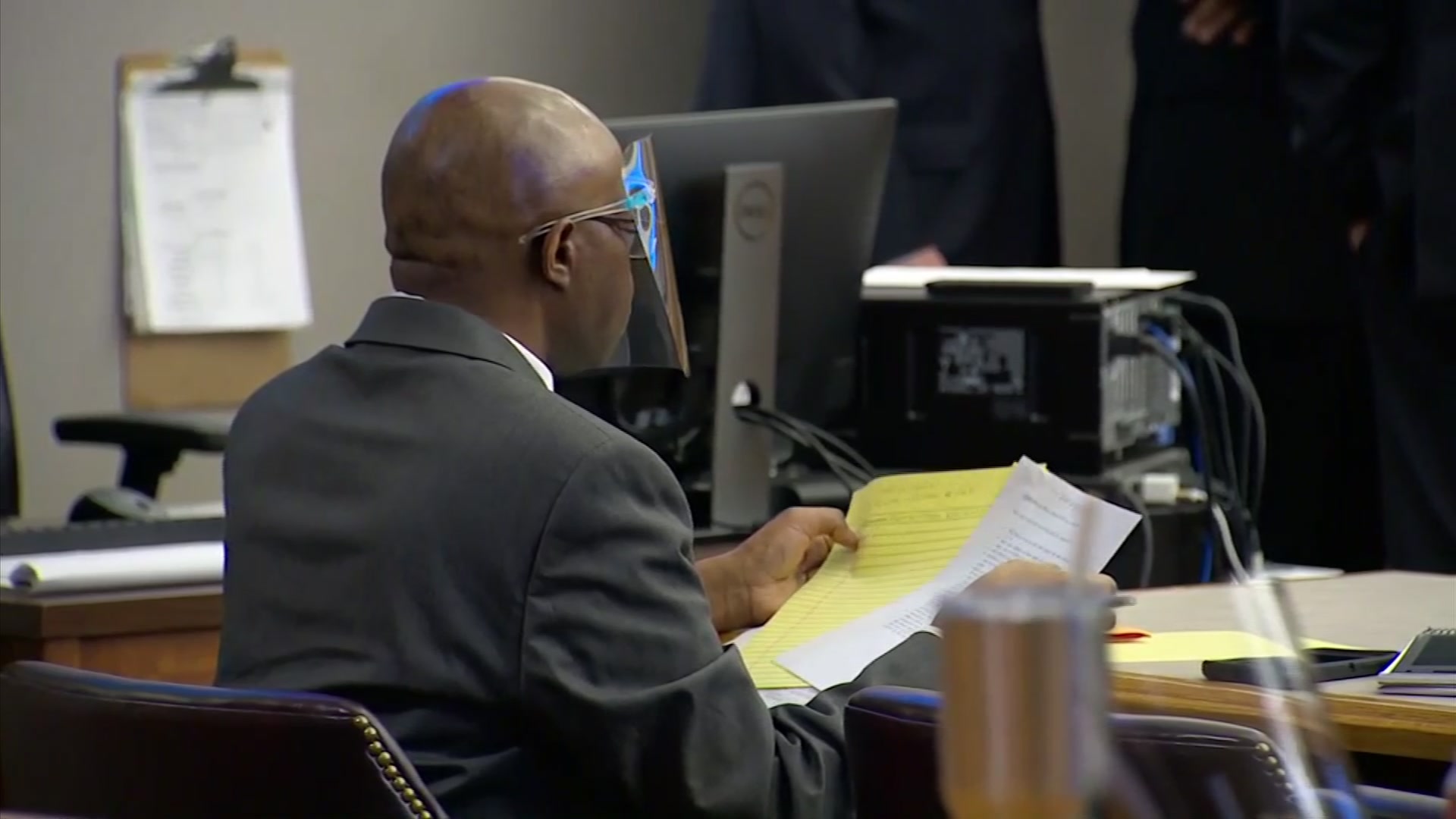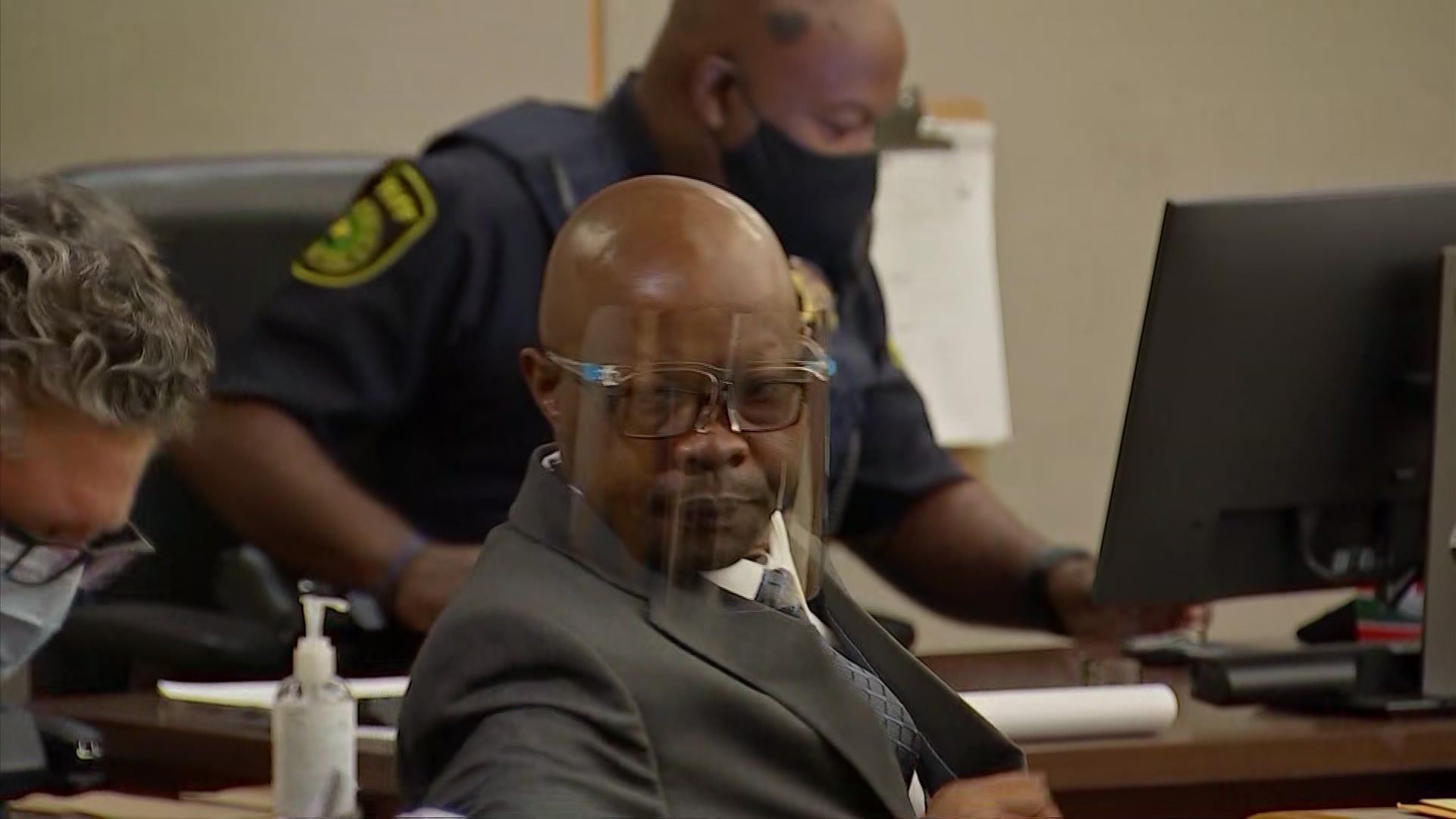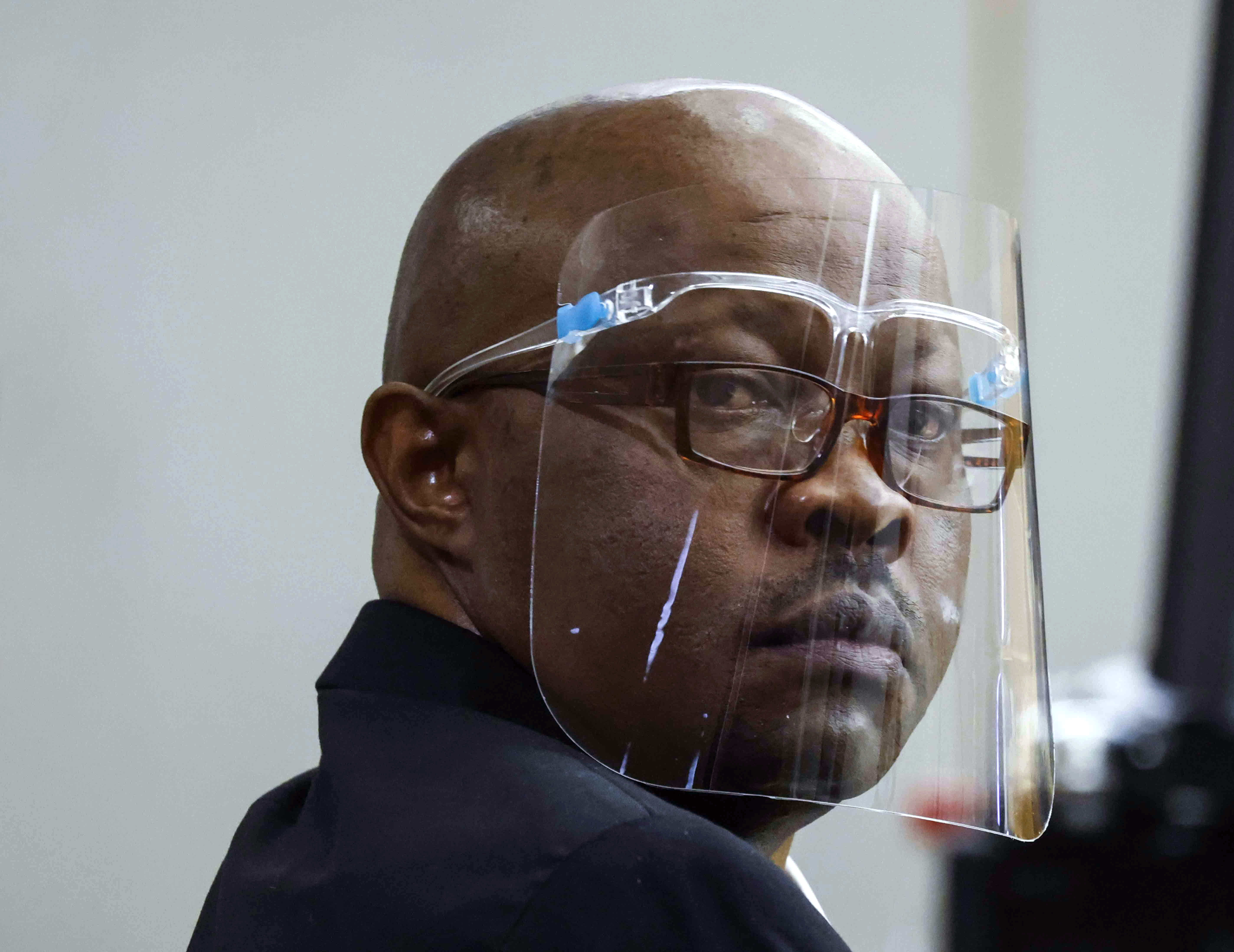The trial of a man accused of killing 22 elderly women in North Texas and stealing jewelry and valuables continued Wednesday in Dallas.
Chemirmir, 49, is on trial for capital murder in the death of 87-year-old Mary Brooks. It's his third trial -- he was convicted in April and sentenced to life without parole in the death of 81-year-old Lu Thi Harris. His first trial ended in a mistrial last November.
If convicted in Brooks’ death, he’ll receive a second sentence of life without parole.
Prosecutor Glen Fitzmartin said in opening statements Monday that while presenting evidence in the deaths of Brooks and Harris, he would also show that DNA links Chemirmir to the death of 80-year-old Martha Williams. That evidence was presented to jurors Wednesday.
Get DFW local news, weather forecasts and entertainment stories to your inbox. Sign up for NBC DFW newsletters.
The daughter of Martha Williams testified about finding her mother dead inside her apartment at Plano's Preston Place retirement community in March of 2018. She immediately noticed her mother's wedding ring was missing, and later noticed an odd stain on a pillow.
It wasn't until North Texas police agencies began reopening death investigations in the wake of Chemirmir's arrest did they revisit Williams' death.
Plano detective Paul Martinez talked about searching Billy Chemirmir's silver Nissan Altima and finding serving platters belonging to Williams in the trunk.
Collin County Assistant Medical Examiner Dr. Stephanie Burton testified DNA found on gloves inside Chemirmir's car could not exclude Martha Williams and DNA found on Williams' pillow and beneath her fingernails could not exclude Chemirmir.

Dallas County Chief Medical Examiner Dr. Jeffrey Barnard told the jury how homicides can go unnoticed if foul play is not initially suspected by police.
“If it looks to be a natural death, nothing at the moment seems suspicious, and an elderly person or someone has a chronic disease we may not go to the scene," Barnard said.
Barnard also explained the challenges of investigating smothering cases with a lack of other evidence.
"In a case of smothering it's not uncommon you don't have physical findings," Dr. Barnard said.
On Tuesday, Plano police discussed Chemirmir's arrest and revisited the evidence in the death of Harris as prosecutors work to show jurors a pattern of behavior among the deaths.
"Time was of the essence because we believed we had another victim," said Det. Bill Knight with the Plano Police Department after officers found a red jewelry box, jewelry and house keys belonging to Harris that were in Chemirmir's possession.
Officers went to Harris's Dallas home that night and found her smothered to death with a pillow.
His arrest was set in motion in March 2018 when Mary Annis Bartel — 91 at the time — told police that a man had forced his way into her apartment at an independent living community for seniors, tried to smother her with a pillow and took her jewelry.
Before Bartel died in 2020, she described the attack in a taped interview that was played to jurors Monday, as it was in the earlier trials. She said the minute she opened her door and saw a man wearing green rubber gloves, she knew she was in “grave danger.”
“He said: ‘Don’t fight me, lie on the bed,’” Bartel said.
Chemirmir has been charged with 22 counts of capital murder in deaths spanning May 2016 to March 2018. Four of those indictments were added this summer.
Most of the people Chemirmir is accused of killing lived in apartments at independent living communities for older people. He’s also accused of killing women in private homes, including the widow of a man he had cared for in his job as an at-home caregiver.
In a video interview with police, Chemirmir told a detective that he made money buying and selling jewelry and had also worked as a caregiver and a security guard.
Chemirmir has maintained his innocence. His attorney entered a not guilty plea on his behalf Monday, but declined to make an opening statement.




